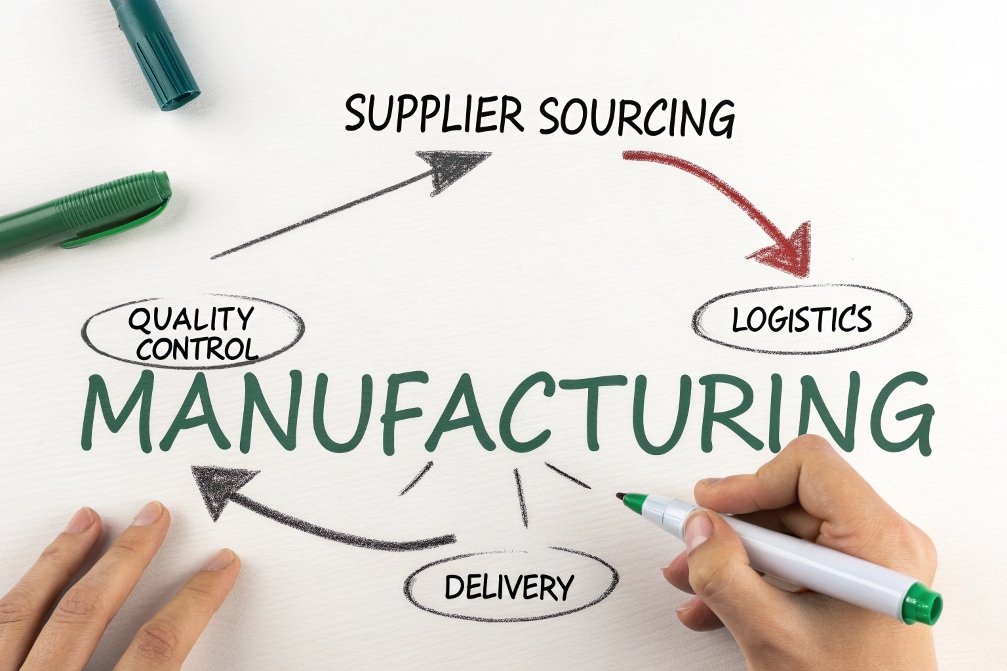
In my experience, sourcing the right suppliers can make or break a manufacturing operation. As manufacturers look for ways to improve efficiency, supplier sourcing plays a crucial role in ensuring that parts arrive on time, at the right cost, and meet the required quality standards. But why exactly is supplier sourcing1 so critical?
Supplier sourcing is crucial for manufacturing efficiency because it ensures the right materials, the right expertise, and timely delivery. Effective sourcing can streamline production, reduce costs, and improve the overall product quality.
Understanding the importance of supplier sourcing is key to improving your manufacturing process. But how exactly does this affect efficiency and production timelines? Let’s take a closer look at the direct and indirect benefits.
How Can You Identify the Right Suppliers for Custom Parts?

Finding the right suppliers for custom parts is essential for maintaining product quality and minimizing delays. By focusing on suppliers who specialize in your required materials, have a strong track record, and align with your needs, you can significantly improve manufacturing efficiency.
Choosing the right suppliers involves more than just finding the lowest price. Suppliers that specialize in your specific type of custom parts2 will be more adept at meeting your precise requirements. It’s crucial to evaluate potential suppliers thoroughly before you make a commitment.
Assessing Supplier Capabilities
Start by looking for suppliers who have the capacity to meet your production needs. For example, if you need large volumes of custom metal parts, you need a supplier with a proven track record of handling high-volume orders. Evaluate their previous projects, ask for references, and assess whether they have the necessary certifications (like ISO or ASTM standards) to meet your quality requirements.
Communication and Support
The ability to communicate effectively with your suppliers is key to preventing mistakes or delays. Look for suppliers that are responsive, transparent, and willing to collaborate. A supplier who understands your specific requirements and can provide timely updates will be invaluable to the manufacturing process.
On-Site Audits and Factory Visits
Visiting the supplier’s factory is one of the best ways to ensure they meet your expectations. It provides an opportunity to evaluate their manufacturing processes, machinery, and quality control measures. On-site audits help you build trust and make sure the supplier’s production capabilities are aligned with your needs.
| Supplier Assessment Factor | Description | Why It’s Important |
|---|---|---|
| Supplier Track Record | Experience in manufacturing custom parts | Ensures they can meet your needs |
| Certifications | ISO, ASTM, or specific industry standards | Guarantees quality and compliance |
| Production Capacity | Ability to handle your volume requirements | Ensures timely delivery of parts |
| Responsiveness | Speed of communication and updates | Minimizes project delays and errors |
What Impact Does Supplier Sourcing Have on Manufacturing Costs?

Supplier sourcing has a significant impact on manufacturing costs, as it directly affects material prices, lead times, and overall production efficiency. Choosing the right suppliers can result in lower costs, while poor supplier choices can lead to increased expenses.
The cost of your custom parts is influenced by several factors, including the cost of raw materials, labor, logistics, and overheads. However, the supplier you choose can help you manage or reduce many of these costs.
Cost Efficiency Through Strategic Sourcing
By working with suppliers that offer competitive pricing and efficient production processes, you can significantly reduce the cost of each part. Additionally, suppliers that use cost-effective manufacturing methods, such as local sourcing for materials or using advanced technologies, can help you cut down on production expenses.
Economies of Scale
Some suppliers may offer economies of scale, which means that the more parts you order, the lower the unit cost becomes. By committing to a reliable supplier with the capacity for large orders, you can negotiate better rates and potentially reduce costs in the long term.
Risk of Overpaying
Choosing a supplier based solely on cost, however, can backfire. Suppliers that cut corners or lack the right materials or capabilities may deliver subpar parts that require rework or lead to product failures. This can result in costly delays, returns, and damage to your reputation.
| Cost Factor | Impact on Manufacturing Costs | Supplier’s Role |
|---|---|---|
| Material Cost | Raw materials pricing and sourcing | Choose suppliers with reliable material sourcing |
| Labor Costs | Cost of production labor | Suppliers with lower labor costs help lower unit costs |
| Shipping and Logistics | Transportation and delivery costs | Local suppliers reduce shipping costs and lead times |
| Economies of Scale | Discounted rates on bulk orders | Suppliers offering bulk discounts help reduce per-unit cost |
Why Should You Diversify Your Suppliers for Increased Efficiency?

Supplier diversification can enhance efficiency by reducing dependency on a single supplier and mitigating risks. By working with multiple suppliers, you can avoid delays, ensure better pricing, and manage production risks more effectively.
Relying on a single supplier can leave you vulnerable to supply chain disruptions, price fluctuations, or quality issues. Diversifying your suppliers ensures that you have backup options and can continue production even if one supplier faces challenges.
Risk Mitigation
Diversifying suppliers helps mitigate risks such as natural disasters, political instability, or sudden price increases. For example, if one supplier faces delays due to weather or a strike, you can turn to another supplier without halting production.
Increased Competition and Better Pricing
When suppliers know that you have multiple options, they are more likely to offer competitive pricing and improved service to retain your business. This encourages better pricing and can lead to more favorable contract terms.
Flexibility in Production
Different suppliers may have different strengths, such as specialization in certain materials or manufacturing processes. By diversifying your suppliers, you can match the right supplier to the specific needs of each project, ensuring better overall performance.
| Diversification Strategy | Benefit | Example |
|---|---|---|
| Multiple Suppliers | Reduces risk and dependency | Using several suppliers for different parts |
| Different Geographical Locations | Avoids supply chain disruptions | Sourcing from suppliers in different regions (Asia, Europe, etc.) |
| Specialized Suppliers | Access to specialized capabilities | Working with a supplier specialized in metal finishing or testing |
Conclusion
Supplier sourcing is a vital component of manufacturing efficiency. Identifying the right suppliers for your custom parts, understanding how supplier choices impact your costs, and diversifying your suppliers can help you achieve more efficient, cost-effective production. By taking the time to assess and manage your suppliers, you can streamline your manufacturing process and reduce risks across your entire supply chain.

